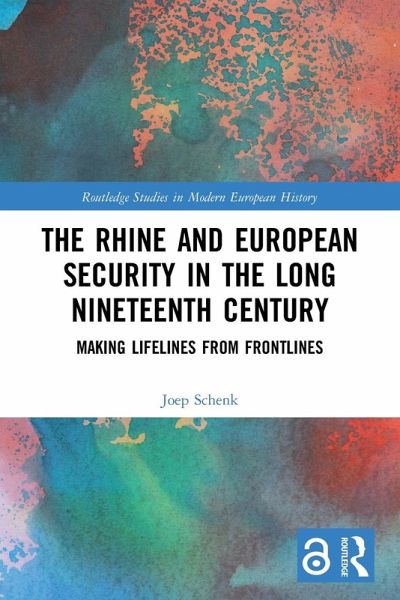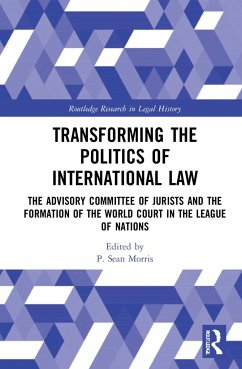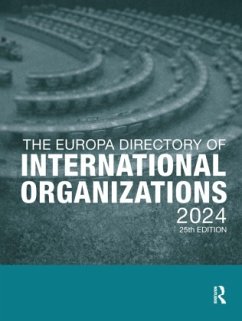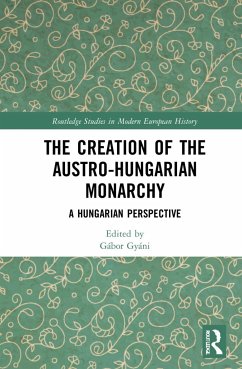
The Rhine and European Security in the Long Nineteenth Century
Making Lifelines from Frontlines
Versandkostenfrei!
Versandfertig in 6-10 Tagen
46,99 €
inkl. MwSt.
Weitere Ausgaben:

PAYBACK Punkte
23 °P sammeln!
Throughout history rivers have always been a source of life and of conflict. This book investigates the Central Commission for the Navigation of the Rhine's (CCNR) efforts to secure the principle of freedom of navigation on Europe's prime river.The book explores how the most fundamental change in the history of international river governance arose from European security concerns. It examines how the CCNR functioned as an ongoing experiment in reconciling national and common interests that contributed to the emergence of European prosperity in the course of the long nineteenth century. In so do...
Throughout history rivers have always been a source of life and of conflict. This book investigates the Central Commission for the Navigation of the Rhine's (CCNR) efforts to secure the principle of freedom of navigation on Europe's prime river.
The book explores how the most fundamental change in the history of international river governance arose from European security concerns. It examines how the CCNR functioned as an ongoing experiment in reconciling national and common interests that contributed to the emergence of European prosperity in the course of the long nineteenth century. In so doing, it shows that modern conceptions and practices of security cannot be understood without accounting for prosperity considerations and prosperity policies. Incorporating research from archives in Great Britain, Germany, and the Netherlands, as well as the recently opened CCNR archives in France, this study operationalises a truly transnational perspective that effectively opens the black box of the oldest and still existing international organisation in the world in its first centenary.
In showing how security-prosperity considerations were a driving force in the unfolding of Europe's prime river in the nineteenth century, it is of interest to scholars of politics and history, including the history of international relations, European history, transnational history and the history of security, as well as those with an interest in current themes and debates about transboundary water governance.
The Open Access version of this book, available at www.taylorfrancis.com, has been made available under a Creative Commons Attribution-Non Commercial-No Derivatives 4.0 license.
The book explores how the most fundamental change in the history of international river governance arose from European security concerns. It examines how the CCNR functioned as an ongoing experiment in reconciling national and common interests that contributed to the emergence of European prosperity in the course of the long nineteenth century. In so doing, it shows that modern conceptions and practices of security cannot be understood without accounting for prosperity considerations and prosperity policies. Incorporating research from archives in Great Britain, Germany, and the Netherlands, as well as the recently opened CCNR archives in France, this study operationalises a truly transnational perspective that effectively opens the black box of the oldest and still existing international organisation in the world in its first centenary.
In showing how security-prosperity considerations were a driving force in the unfolding of Europe's prime river in the nineteenth century, it is of interest to scholars of politics and history, including the history of international relations, European history, transnational history and the history of security, as well as those with an interest in current themes and debates about transboundary water governance.
The Open Access version of this book, available at www.taylorfrancis.com, has been made available under a Creative Commons Attribution-Non Commercial-No Derivatives 4.0 license.














